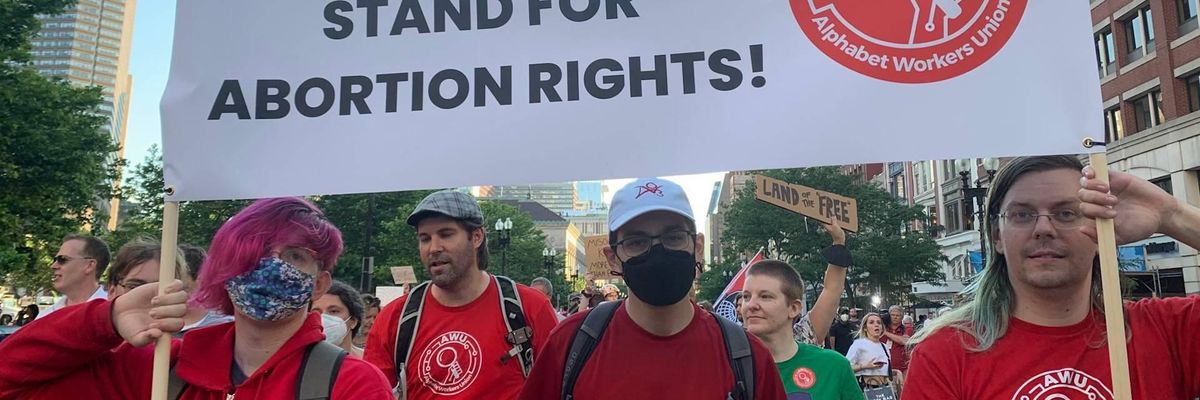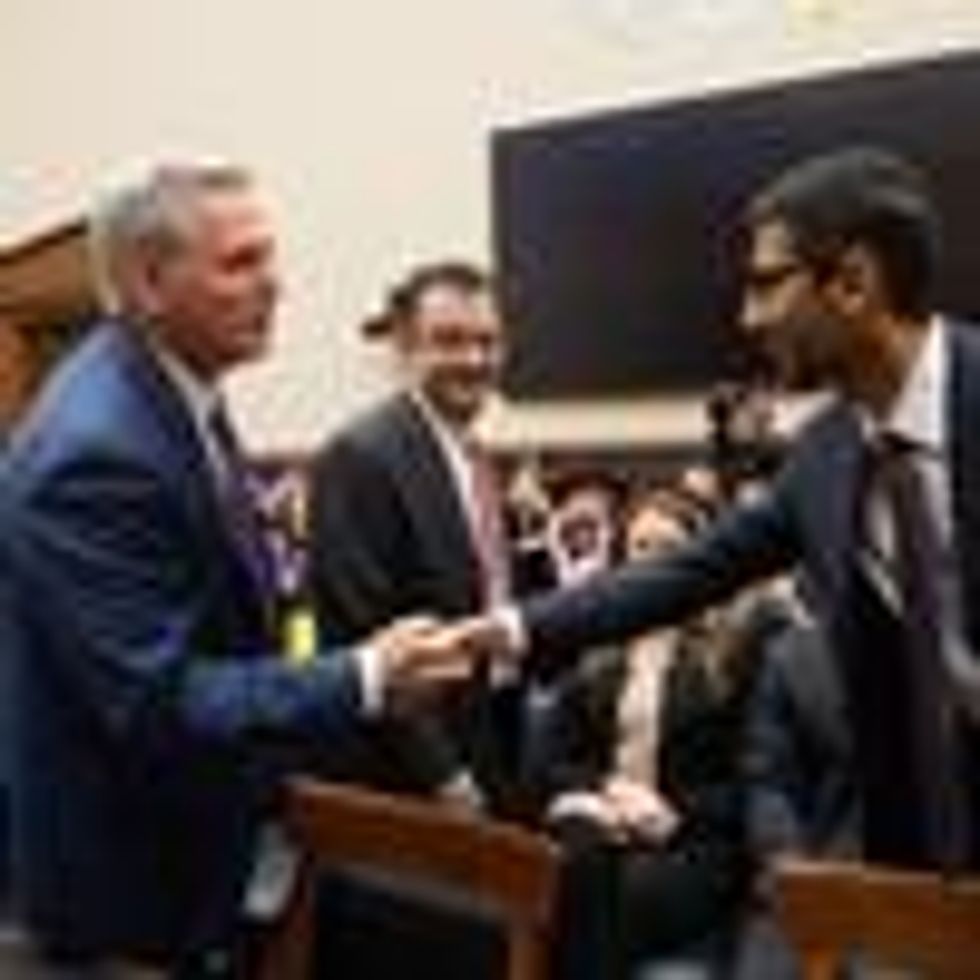Pro-choice U.S. lawmakers and other critics of Google's abortion-related search results welcomed the tech giant's Thursday announcement of changes to better serve users seeking healthcare in a post-Roe v. Wade world.
In a letter to congressional Democrats and a statement to media outlets, Alphabet-owned Google reiterated its efforts to combat misleading advertisements and search results along with confirming that the company will clearly label whether medical facilities provide abortions.
As TechCrunchdetailed Thursday:
Google will start adding clear labels to search and map listings for healthcare facilities that provide abortions. The change comes in light of the Supreme Court's decision to strip federal abortion rights. The company said on Thursday that if it has received confirmation that a healthcare facility provides abortions, the label for the center will say, "Provides abortions." In cases where Google doesn't have that confirmation, the label for relevant searches will say, "Might not provide abortions."
[...]
When asked if Google will specifically label crisis pregnancy centers with the "Might not provide abortions" label or if it will only use that label in instances where it's unsure of the services provided, the company said the update is not about categorizing the places themselves or labeling specific types of organizations. It notes that the label "Might not provide abortions" could appear on a range of different places that are available in an area but don't provide that service.
"When people turn to Google to find local information, we aim to help them easily explore the range of places available so they can determine which are most helpful to them," a Google spokesperson said in a statement. "For a number of categories where we've received confirmation that places offer specific services, we've been working for many months on more useful ways to display those results."
"We're now rolling out an update that makes it easier for people to find places that offer the services they've searched for, or broaden their results to see more options," the spokesperson added. "We followed our standard testing and evaluation process to confirm that these updates are more helpful for people."
The company's update follows a June 17 letter led by Sen. Mark Warner (D-Va.) and Rep. Elissa Slotkin (D-Mich.)--which noted Center for Countering Digital Hate (CCDH) research from earlier that month showing 11% of search results and 37% of Google Maps listings for "abortion clinic near me" and "abortion pill" in "trigger law" states led to fake clinics, or "crisis pregnancy centers" (CPCs).
Google's announcement also follows Bloomberg's reporting last week that "when users type the words 'abortion clinic' into the Maps search bar, crisis pregnancy centers account for about a quarter of the top 10 search results on average across all 50 US states, plus Washington D.C.," and in the 13 states with new restrictions on the procedure, "five or more of the top 10 results were for CPCs."
In response to Thursday's news, Warner said that "I welcome the changes that Google has announced today so that women seeking abortion services aren't directed towards fake clinics that traffic in misinformation and don't provide comprehensive health services."
The senator stressed that "importantly, this isn't about silencing voices or restricting speech--it's about returning search results that accurately address a user's query and giving users information that is relevant to their searches."
CCDH founder and CEO Imran Ahmed called Google's move "a significant change that directly resulted from" his group's research, which he noted was featured in Warner's letter to the company.
"Google is labeling facilities that give abortions, a big deal for users who've been misled by pregnancy crisis centers masquerading as abortion providers--a big win," tweeted the Alphabet Workers Union. "But not enough--Google must *remove* these misleading results, as we've called for."
"And of course, it must make a slew of changes to protect our coworkers and users, who are still at risk of being arrested for seeking healthcare that's routine in the rest of the world," the union added. "We'll keep pushing for these and all our post-Roe demands."
As Common Dreams reported last week, hundreds of Google workers have endorsed a petition urging Alphabet to stop supporting right-wing politicians and groups attacking reproductive freedom. Employees--along with lawmakers and rights groups--have also called for stronger privacy policies.
Related Content
Google Workers Push Tech Giant to Stop Funding Lawmakers Destroying Abortion Rights
Brett Wilkins
Some responses to Google's update were more critical--from skepticism about effectiveness to highlighting that no reforms to search results can combat laws that restrict abortion rights.
Davey Alba, one of the journalists behind the Bloomberg analysis, noted that Google's reforms came the same day that new anti-choice laws took effect in Tennessee and Texas. Another in Idaho was blocked by a last-minute federal court ruling.
Roger McNamee--a venture capitalist and author of Zucked: Waking Up to the Facebook Catastrophe--tweeted in response to CNBC's reporting on the announcement: "Given past failures by Google to deliver on promises, I think a better headline would have been: 'Google SAYS IT will only show verified abortion providers by default when users search for clinics.'"
Luther Lowe, senior vice president of public policy at Yelp, suggested that the changes won't stop Google from directing those in search of abortion providers to CPCs.
Yelp--a website and mobile application that allows users to submit and read reviews of businesses--announced Tuesday that the company is introducing a new notification for the pages of CPCs "that informs consumers these businesses typically offer limited medical services" and is expanding the "manual recategorization effort for those businesses."


